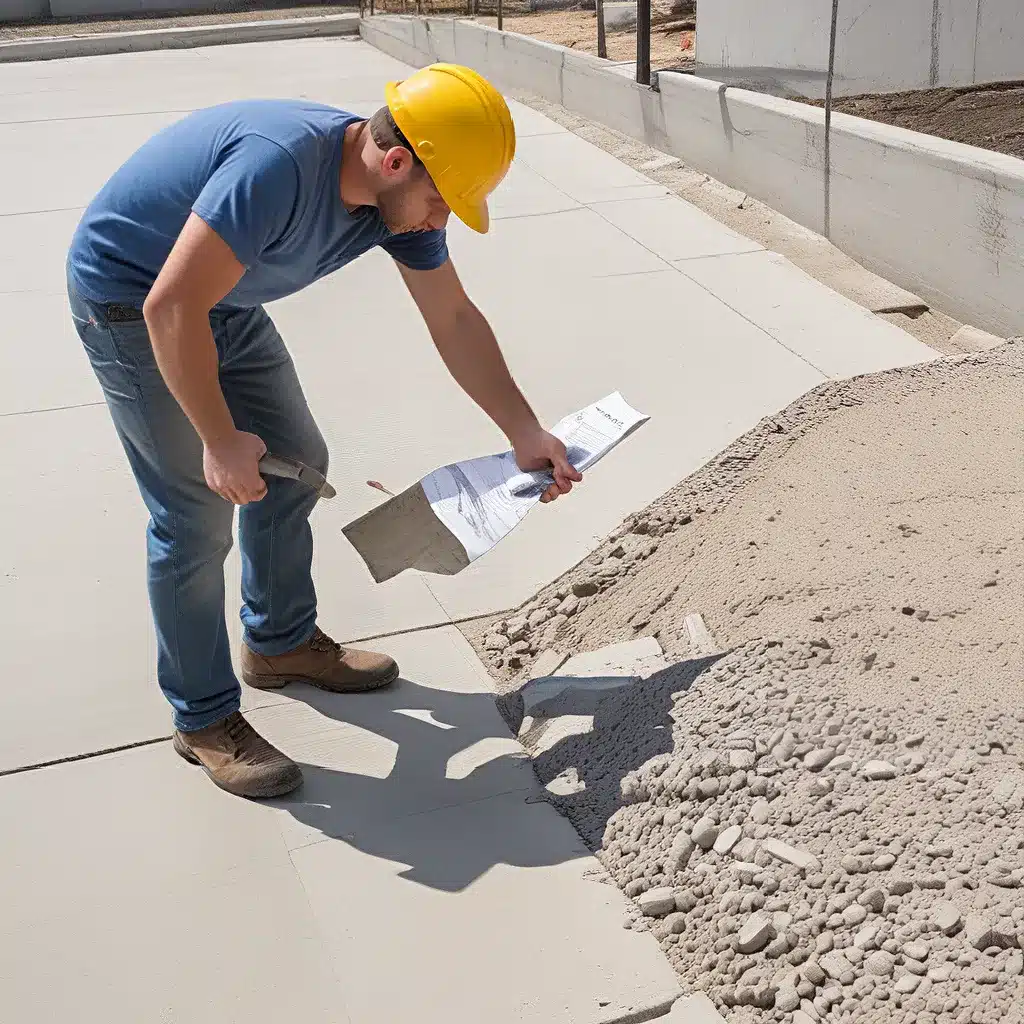
Unlocking the Secrets of Effective Construction Job Costing
As a concrete contractor in Kansas City, managing your construction budgets is crucial for the success and profitability of your business. Accurate job costing is the key to unlocking a true understanding of your finances, allowing you to make informed decisions, identify cost-saving opportunities, and maximize your bottom line.
Consistent tracking of project costs is essential for evaluating job performance and budgeting for future projects. By breaking down your expenses into the five main categories – labor, materials, equipment, subcontractors, and other direct costs – you can gain valuable insights that will shape your estimates and bidding strategies.
One of the most common pitfalls in construction job costing is failing to account for labor burden, which can understate your true labor costs by as much as 50%. Factors like payroll taxes, workers’ compensation, and health insurance premiums must be factored in to accurately reflect your all-in labor expenses.
Additionally, material costs can be tricky to track, as they fluctuate based on job size, market rates, and quality. Utilizing digital tools can simplify the process of tracking material purchases, especially for trades that require a large quantity of diverse materials.
Construction budgeting also encompasses indirect costs, such as administrative expenses, insurance, utilities, and rent. While these costs should not be included in your job-level costing, they are essential in understanding your overall business profitability.
Leveling Up with Phase-Based Job Costing
Phase-based job costing takes your construction budgeting to the next level by breaking down each project into distinct phases and tracking costs at a more granular level. This approach allows you to identify where and why cost overruns occur, enabling you to make targeted adjustments and improve profitability on future jobs.
By treating each phase as a mini-budget, you can evaluate cost performance within specific areas of the project, such as groundwork, rough-in, or trim-out for a plumbing contractor. This level of detail can reveal which processes or tasks are driving up your expenses, empowering you to optimize your operations and apply these learnings to future bids.
Utilizing cost codes can further enhance your phase-based job costing, ensuring consistent reporting and analysis across multiple projects. By aligning with industry-standard coding systems like CSI, you can standardize your budget categories and easily compare costs between jobs.
Effective phase-based budgeting requires a well-thought-out plan from the start. Create detailed budgets for each phase, including specific targets for labor, materials, equipment, and subcontractors. This gives you a clear benchmark to measure against as the project progresses, allowing you to identify and address cost overruns before they spiral out of control.
Unlocking the Power of Work-in-Progress (WIP) Accounting
Work-in-Progress (WIP) accounting is a powerful tool for monitoring the financial health of your construction projects in real-time. By tracking the monetary value of completed work that has not yet been invoiced, you can determine if you are over or under-billing your clients, which can significantly impact your cash flow.
To calculate your WIP value, you’ll need to know your actual costs and your budgeted costs. From there, you can determine the percentage of completion and use that to calculate the appropriate amount to invoice, ensuring you’re neither over-billing nor under-billing your clients.
Maintaining a positive WIP position is crucial for managing your cash flow and avoiding potential cash shortages later in the project. Conversely, a negative WIP may indicate that you’re over-billing, which can harm client relationships and potentially lead to future disputes.
Embrace the Power of Construction Budgeting
Effective construction budgeting is the cornerstone of a successful concrete contracting business in Kansas City. By mastering job costing techniques, you can identify cost-saving opportunities, improve bidding accuracy, and enhance your overall profitability.
Whether you’re starting with a basic job-level approach or diving into phase-based budgeting, the key is to establish a comprehensive budget and consistently track your expenses. Leverage digital tools and industry-standard cost codes to streamline the process and gain valuable insights that will transform your business.
Remember, construction budgeting is not just about controlling costs; it’s about making informed decisions, fostering strong client relationships, and ensuring the long-term success of your concrete contracting services in Kansas City. Embrace the power of construction job costing, and watch your business thrive.
Concrete Contractor Kansas City is dedicated to providing high-quality concrete services to residential and commercial clients throughout the region. Our experienced team of professionals can assist you with all your concrete needs, from installation and repair to maintenance and beyond. Contact us today to learn more about how we can help you with your next concrete project.

